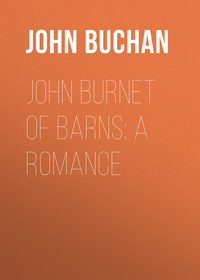Sadece Litres'te okuyun
Kitap dosya olarak indirilemez ancak uygulamamız üzerinden veya online olarak web sitemizden okunabilir.
Kitabı oku: «John Burnet of Barns: A Romance», sayfa 19
Bir şeyler ters gitti, lütfen daha sonra tekrar deneyin
Türler ve etiketler
Yaş sınırı:
12+Litres'teki yayın tarihi:
25 haziran 2017Hacim:
390 s. 1 illüstrasyonTelif hakkı:
Public Domain